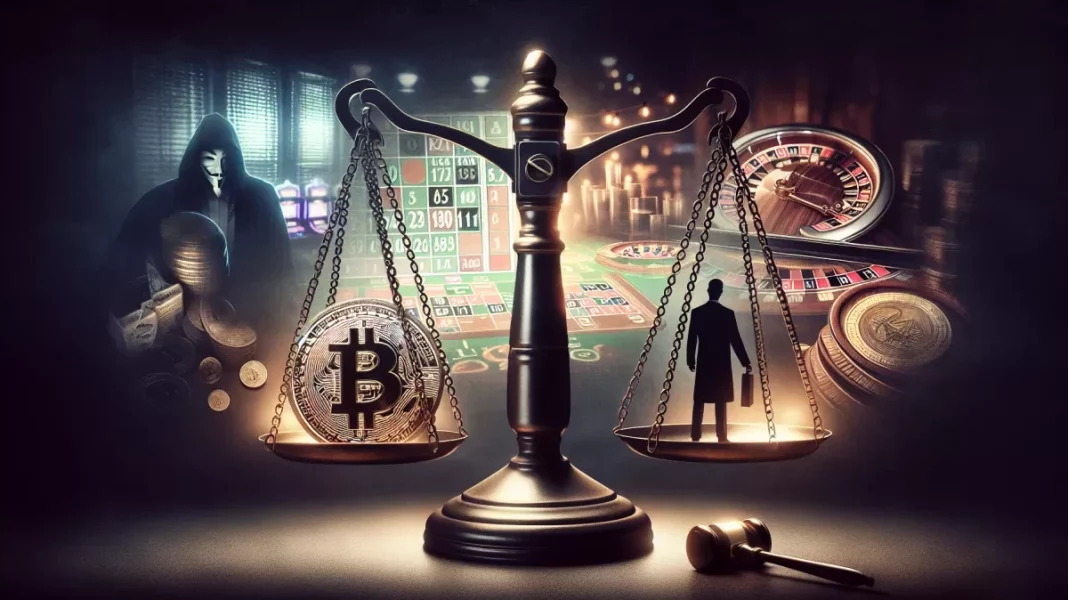As Bitcoin continues to make waves as a digital currency, its impact on various sectors becomes increasingly pronounced. The online gambling industry, always quick to embrace innovative technology, has seen a proliferation of Bitcoin casinos. These casinos offer the allure of more privacy, reduced transaction fees, and speedier payouts. However, beneath the digital veneer of convenience and anonymity, there lurk legal implications that both operators and participants should consider. This in-depth analysis explores the security concerns of Bitcoin casinos and the legal framework that surrounds them.
Understanding Bitcoin Casino Security
The allure of Bitcoin casinos stems partially from the blockchain technology that underpins them. Blockchain offers a decentralized network that is, in theory, more resistant to fraud and hacking than traditional centralized databases. It ostensibly provides anonymity and security for users. But the application of this technology within the realm of online gambling raises various security questions.
Key Security Concerns in Bitcoin Casinos
1.
Anonymity vs. Verification
: While anonymity is a key selling point for Bitcoin gambling, it also presents a conundrum. Without verification measures, these platforms might inadvertently facilitate money laundering or underage gambling. This leads to a legal gray area where operators must balance privacy with regulatory compliance.2.
Regulatory Oversight
: Traditional casinos are subject to stringent regulations, which include security protocols to protect users’ funds and personal data. However, Bitcoin casinos often operate without the same level of oversight, relying instead on self-governance and the inherent security of cryptocurrencies.3.
Security Breaches
: The online nature of Bitcoin casinos makes them vulnerable to cyberattacks. Despite the robustness of blockchain, other parts of a casino’s digital infrastructure, like user accounts and servers, can be compromised. The semi-anonymous nature of Bitcoin can make recovery of funds difficult, if not impossible.Legal Framework for Bitcoin Casinos
The legal landscape for Bitcoin casinos is complex and varies dramatically from one jurisdiction to another. There is no unified global stance on cryptocurrency gambling, leading to a patchwork of regulations that operators must navigate.
Legality and Jurisdictional Challenges
In territories where online gambling is legal and regulated, Bitcoin casinos must adhere to the same rules as conventional casinos, including obtaining licenses and implementing anti-money laundering (AML) and know your customer (KYC) procedures. In contrast, some countries outright ban online gambling or cryptocurrency use, rendering Bitcoin casinos illegal.
The Fine Line Between Gaming and Gambling
Many countries distinguish between games of skill and games of chance, the latter typically falling into the category of gambling and subject to stricter controls. Since Bitcoin casinos offer a range of games that can include both, determining the legal status of these activities adds an additional layer of complexity.
Security Protocols and Legal Compliance
Licensed Bitcoin casinos are required to implement security measures that protect users against theft and fraud. This includes secure socket layer (SSL) encryption for data transfer, two-factor authentication (2FA) for user accounts, cold storage of funds, and careful monitoring of transactions.
Consumer Protection Laws
Where gambling is legal, governments usually enforce consumer protection laws, which Bitcoin casinos must observe. These laws can demand that operators provide clear terms of service, responsible gaming tools, and mechanisms for users to address grievances.
Taxation
The pseudonymous nature of Bitcoin transactions poses challenges for taxation. Players and operators may be uncertain about tax obligations, particularly in regions where the legal status of Bitcoin remains undefined.
Ensuring a Safe Betting Environment
For players, the security of Bitcoin casinos is paramount. Here are practical steps users can take to ensure their safety:
1.
Perform due diligence
: Check the legality of Bitcoin gambling in your location, and only use platforms that are licensed and have a demonstrable track record.2.
Use secure connections
: Guard against common Internet security threats by using a VPN and ensuring your connection is private and secure.3.
Understand the platform’s security measures
: Familiarize yourself with the security protocols of the Bitcoin casino, such as their cold storage policy and what encryption methods they employ.4.
Practice responsible gambling
: Use tools offered by Bitcoin casinos for self-regulation, including deposit limits and self-exclusion options.The growing enthusiasm for Bitcoin gaming comes with the need for increased awareness of the security risks and legal implications that accompany it. As legislators work to catch up with the technology, and as operators innovate in the field of secure gambling, a careful balance must be struck between the freedoms offered by cryptocurrency and the need for a fair, safe, and legal betting environment. Riders on the frontier of Bitcoin gambling must navigate this evolving landscape with prudence and informed caution.



